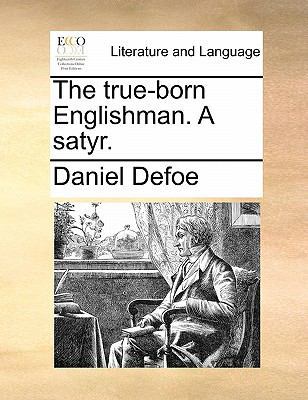All Formats & Editions

Daniel Defoe - The True-Born Englishman: "Why h...
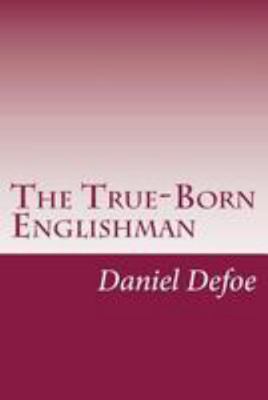
The True-Born Englishman

The True-Born Englishman

The True-Born Englishman
"The True-Born Englishman" from Daniel Defoe. English trader, writer, journalist, pamphleteer, and spy, now most famous for his novel Robinson Crusoe (1660-1731).

The True Born Englishman. A Satire. By Daniel D...

The True-born Englishman: A Satire. By Daniel D...

The True-Born Englishman
It is not that I see any reason to alter my opinion in any thing I have writ, which occasions this epistle; but I find it necessary for the satisfaction of some persons of honour, as well as wit, to pass a short explication upon it; and tell the world what I mean, or rather,...
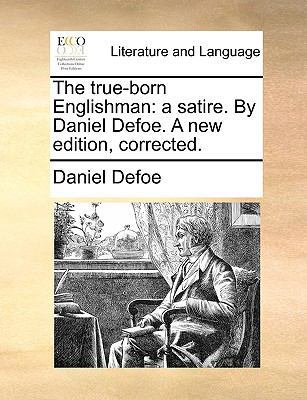
The True-Born Englishman: A Satire. by Daniel D...
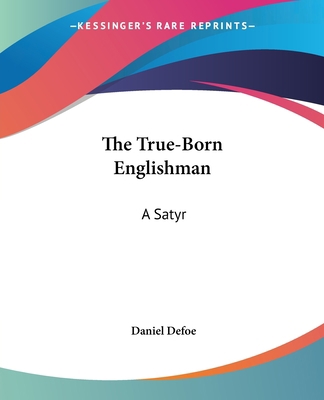
The True-Born Englishman: A Satyr
The True-Born Englishman: A Satyr is a political poem written by Daniel Defoe in 1701. The poem is a satirical attack on English prejudice and xenophobia towards immigrants, particularly towards Dutch immigrants who had settled in England. The poem argues that the English themselves...
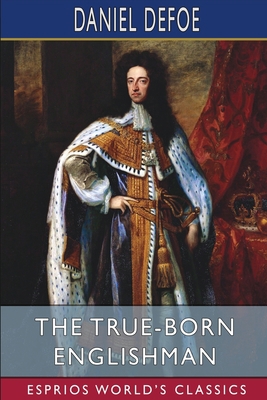
The True-Born Englishman (Esprios Classics): A ...
The True-Born Englishman is a satirical poem published in 1701 by English writer Daniel Defoe defending King William III, who was Dutch-born, against xenophobic attacks by his political enemies in England. The poem quickly became a bestseller in England. According to a preface...

The True-Born Englishman

The True-born Englishman: A Satire
This work has been selected by scholars as being culturally important, and is part of the knowledge base of civilization as we know it. This work is in the "public domain in the United States of America, and possibly other nations. Within the United States, you may freely...

The True-born Englishman: A Satire. By Daniel D...

The True Born Englishman. A Satire. By Daniel D...

The True Born Englishman. A Satire. By Daniel D...

The True-born Englishman: A Satire
This work has been selected by scholars as being culturally important, and is part of the knowledge base of civilization as we know it. This work is in the "public domain in the United States of America, and possibly other nations. Within the United States, you may freely...
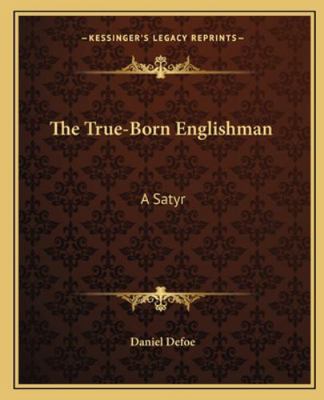
The True-Born Englishman: A Satyr
The True-Born Englishman: A Satyr is a satirical poem written by Daniel Defoe in 1701. The poem is a commentary on the English society of the time and explores issues such as nationalism, identity, and prejudice. Defoe uses the poem to criticize the English people who claim to...

The True-Born Englishman

The True-Born Englishman
The True-Born Englishman is a satirical poem published in 1701 by Daniel Defoe defending the then King of England William, who was Dutch-born, against xenophobic attacks by his political enemies, and ridiculing the notion of English racial purity. It quickly became popular.According...
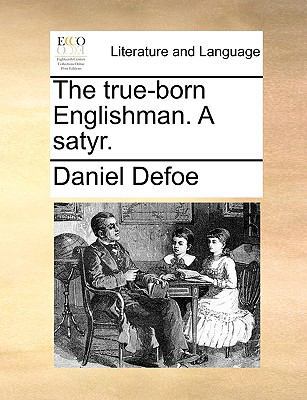
The True-Born Englishman. a Satyr.
The 18th century was a wealth of knowledge, exploration and rapidly growing technology and expanding record-keeping made possible by advances in the printing press. In its determination to preserve the century of revolution, Gale initiated a revolution of its own: digitization...
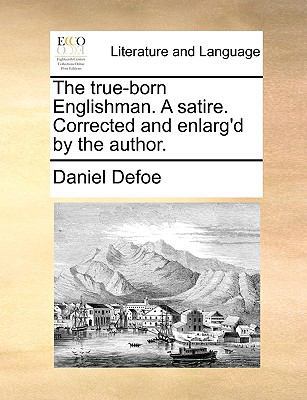
The true-born Englishman. A satire. Corrected a...
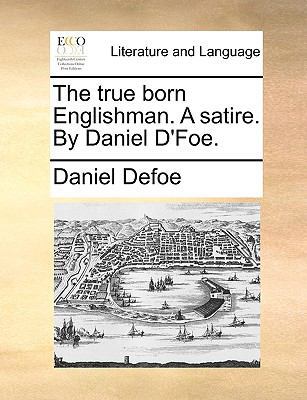
The true born Englishman. A satire. By Daniel D...
The 18th century was a wealth of knowledge, exploration and rapidly growing technology and expanding record-keeping made possible by advances in the printing press. In its determination to preserve the century of revolution, Gale initiated a revolution of its own: digitization...

The True-Born Englishman, a Satyr.
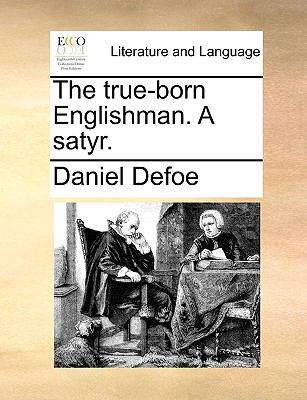
The True-Born Englishman. a Satyr.
The 18th century was a wealth of knowledge, exploration and rapidly growing technology and expanding record-keeping made possible by advances in the printing press. In its determination to preserve the century of revolution, Gale initiated a revolution of its own: digitization...
